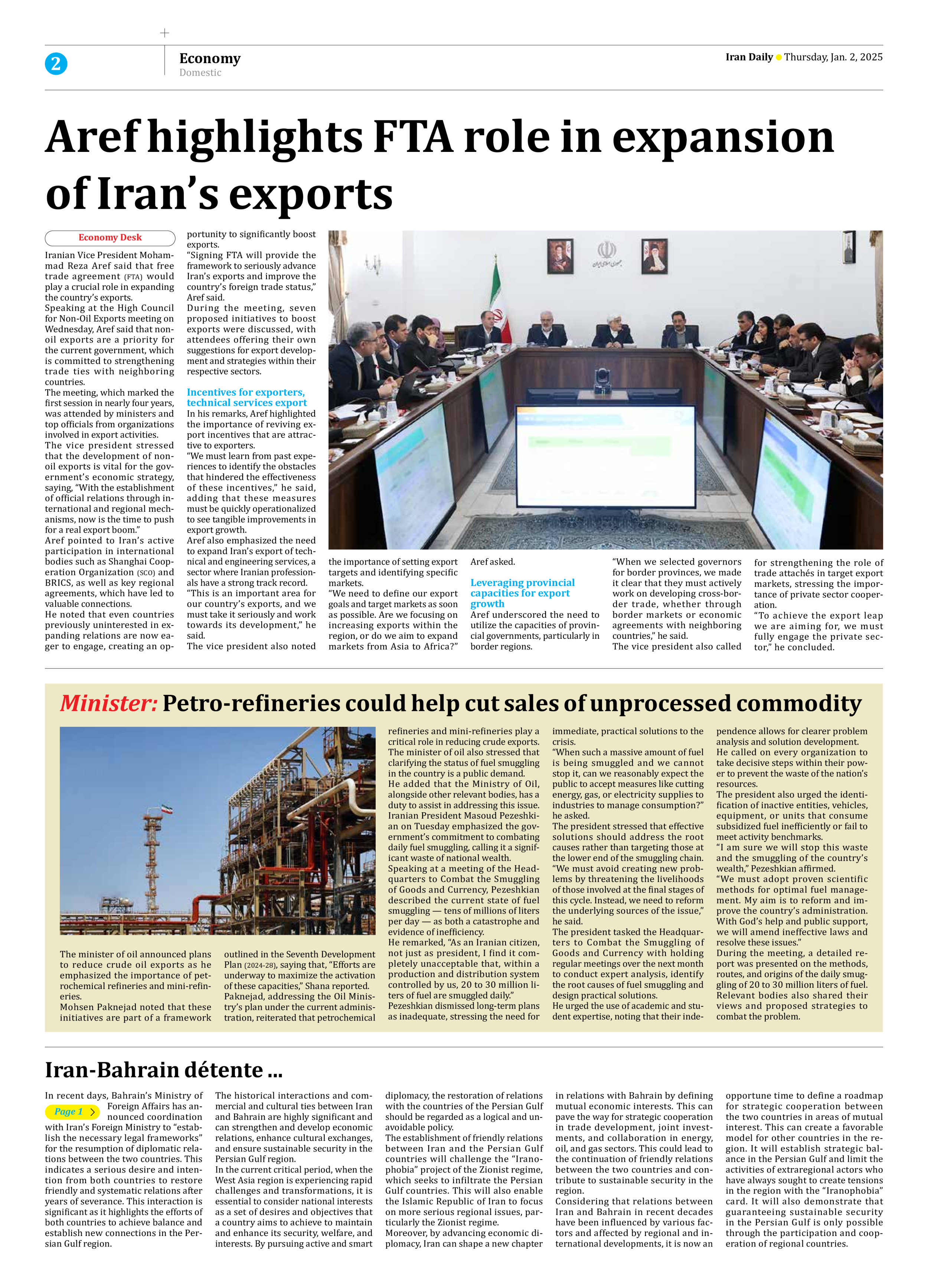
Copy in clipboard...
Minister: Petro-refineries could help cut sales of unprocessed commodity
Mohsen Paknejad noted that these initiatives are part of a framework outlined in the Seventh Development Plan (2024-28), saying that, “Efforts are underway to maximize the activation of these capacities,” Shana reported.
Paknejad, addressing the Oil Ministry’s plan under the current administration, reiterated that petrochemical refineries and mini-refineries play a critical role in reducing crude exports.
The minister of oil also stressed that clarifying the status of fuel smuggling in the country is a public demand.
He added that the Ministry of Oil, alongside other relevant bodies, has a duty to assist in addressing this issue.
Iranian President Masoud Pezeshkian on Tuesday emphasized the government’s commitment to combating daily fuel smuggling, calling it a significant waste of national wealth.
Speaking at a meeting of the Headquarters to Combat the Smuggling of Goods and Currency, Pezeshkian described the current state of fuel smuggling — tens of millions of liters per day — as both a catastrophe and evidence of inefficiency.
He remarked, “As an Iranian citizen, not just as president, I find it completely unacceptable that, within a production and distribution system controlled by us, 20 to 30 million liters of fuel are smuggled daily.”
Pezeshkian dismissed long-term plans as inadequate, stressing the need for immediate, practical solutions to the crisis.
“When such a massive amount of fuel is being smuggled and we cannot stop it, can we reasonably expect the public to accept measures like cutting energy, gas, or electricity supplies to industries to manage consumption?” he asked.
The president stressed that effective solutions should address the root causes rather than targeting those at the lower end of the smuggling chain.
“We must avoid creating new problems by threatening the livelihoods of those involved at the final stages of this cycle. Instead, we need to reform the underlying sources of the issue,” he said.
The president tasked the Headquarters to Combat the Smuggling of Goods and Currency with holding regular meetings over the next month to conduct expert analysis, identify the root causes of fuel smuggling and design practical solutions.
He urged the use of academic and student expertise, noting that their independence allows for clearer problem analysis and solution development.
He called on every organization to take decisive steps within their power to prevent the waste of the nation’s resources.
The president also urged the identification of inactive entities, vehicles, equipment, or units that consume subsidized fuel inefficiently or fail to meet activity benchmarks.
“I am sure we will stop this waste and the smuggling of the country’s wealth,” Pezeshkian affirmed.
“We must adopt proven scientific methods for optimal fuel management. My aim is to reform and improve the country’s administration. With God’s help and public support, we will amend ineffective laws and resolve these issues.”
During the meeting, a detailed report was presented on the methods, routes, and origins of the daily smuggling of 20 to 30 million liters of fuel. Relevant bodies also shared their views and proposed strategies to combat the problem.







